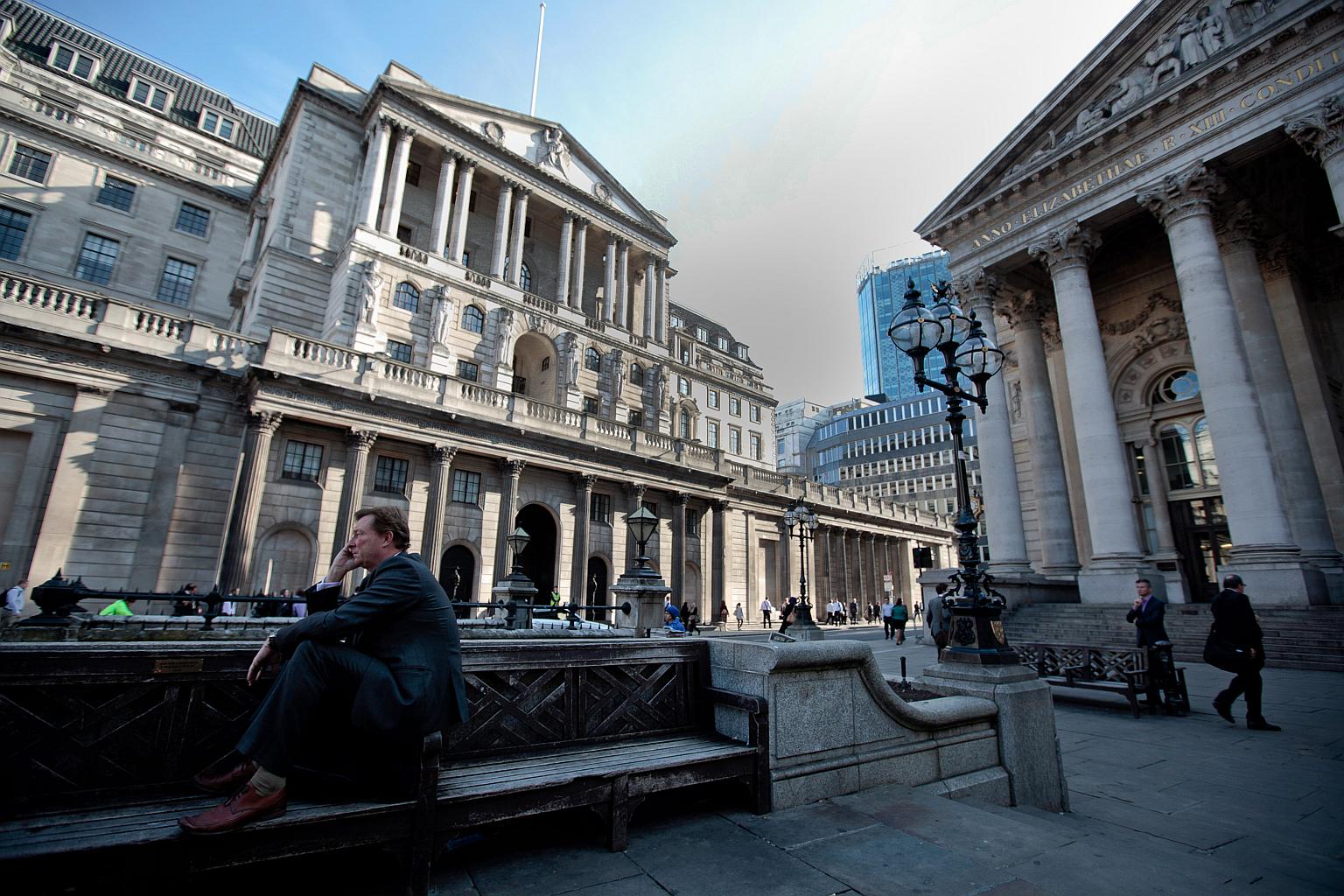Central Bank officials set 2016 interim deadline for new forex code
Sign up now: Get ST's newsletters delivered to your inbox

A businessman speaks on a mobile phone while sitting on a street bench outside the Royal Exchange (right), and Bank of England (left), in London.
PHOTO: BLOOMBERG
Follow topic:
LONDON (BLOOMBERG) - Central bank officials are moving ahead with new guidelines to eradicate misconduct in currency markets and aim to publish some details within eight months, in preparation for completion in 2017.
Speaking in London on Wednesday, Reserve Bank of Australia Assistant Governor Guy Debelle, who chairs the Bank for International Settlements' foreign-exchange working group, said the global code will replace existing guidelines and aim to remove any excuse of ignorance in the case of breaches. The initiative comes after foreign-exchange rate rigging undermined market confidence, resulted in traders being fired or suspended and saw huge fines levied on financial institutions.
"We're not going to try and reinvent the wheel," said Mr Debelle, who heads the committee. "We're going to harmonize work on codes of conduct." A "reasonable chunk" of the new guide will be published by May 2016, he said.
"One of the comments in recent years has been a lack of clarity, so we're going to try and resolve that," said Mr Debelle. That means "what counts as good and bad practice."
Enforcing the code still remains an issue, including how a global program can include sanctions that may be at odds with local legislation. Chris Salmon, an executive director at the Bank of England, said there's more work to be done on this aspect. He said incentives and less severe penalties can be considered before recommending adherence through legal regimes and criminal sanctions.
"We are supportive of any industrywide effort to agree on what market best practice is," said James Wood-Collins, the chief executive officer of U.K.-based currency manager Record Plc.
"It's helpful to make it a global initiative but if its global it can really only be code of conduct because the level of local parliamentary scrutiny that would be required in each jurisdiction for it to become binding regulation, is simply too high for that to be realistic."

